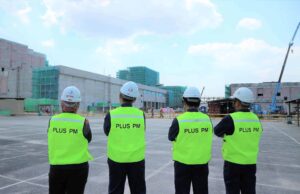*Updated on 6th September, 2023 (Published on 29th September, 2021)
“All works have finished and my contractor has received all the payments. Although there is still in defect period, the contractor does not care about the rectification work for the defect works. What happen if my contractor run away and what needs to be done?”
We often hear clients complain about the contractor’s sweet promise before being appointed to a contract. To prevent this from happening, this is the reason why construction bond is introduced in the construction contract.
As project management consultants, we may recommend various risk mitigation strategies to our clients, including performance bonds. For instance, a client may be concerned that a contractor may not complete a construction project as planned, and the consultant may recommend that the contractor provide a construction bond such as performance bond as an insurance policy to ensure that the client is compensated in the event of a breach of contract.
The application of these concepts may vary depending on the industry, the type of project, and the contractual arrangements in place. If these concepts are being considered for a specific project, it is recommended that legal and professional advice be sought to determine whether the strategies and mechanisms are appropriate for the client’s particular circumstances.
However, there are many contractors who are unfamiliar with setting construction bonds, and some contractors dislike setting performance bonds, so the ordering party must take the initiative in setting them.
The continuity of contract administration after the completion period should also be given attention to ensure that the client’s intention are achieved. This article explains the pros and cons of Construction bonds on private projects .
This article is produced by Plus PM Consultant Sdn. Bhd. who provides project management and construction management expertise in construction projects in ASEAN. The company also provides assistance for companies looking to enter and expand into the ASEAN market.
What is a construction bond?
A construction bond is a type of surety bond used by investors in construction projects.
it is a contractual agreement between three parties: Principal (Contractor), Obligee (Owner who wants to appoint them), and a surety bond company.
it may come in two parts on larger projects: one to protects against disruptions or financial loss due to a contractor’s failure to complete a project or failure to meet contract specifications and the other to protect against non-payment of materials from suppliers and labor from subcontractors.
KEY POINTS
- A construction bond is a type of surety bond used by investors in construction projects.
- The bond protects against disruptions or financial loss due to a contractor’s failure to complete a project or failure to meet project specifications.
- By submitting a construction bond, the party managing the construction work states they can complete the job according to the contractual policy.
- When a contractor fails to abide by any of the conditions of the contract, the surety and contractor are both held liable.
- The five main types of construction bonds are bid, performance, advance, maintenance and payment.
Types of Construction Bonds
The term construction bond actually applies to some different kinds of bonds, outlined below.
| Bid bond | Bid bond is bond issued by a bank or other financial institution, guaranteeing the intention of the contractor and to honor the term during tender process. |
| Performance bond | Performance bond is bond issued by a bank or other financial institution, guaranteeing the fulfilment of a contract’s terms. |
| Advance payment bond | Advance payment bond is bond issued by a bank or other financial institution, guaranteeing the repayment of the Advance payment. |
| Maintenance Bond | Maintenance Bond is bond issued by a bank or other financial institution, the contractor will remedy any problems related to workmanship, materials, or design. |
| Payment bond | A payment bond is purchased by a contractor to protect the property owner by guaranteeing payment to all the subcontractors and suppliers below them on the project. |
In addition to the above, Retention sum is another function of Performance Bond that protects clients after the contract is completed.
Retention sum is a form of security given to project owner for the due performance of the construction contract by the contractor. Retention sum is percentage (usually 5%) of the contract amount certified as due to the contractor on an interim certificate that is retained by the employer.
What are the Parties Involved in a Construction Bond?

| Principal/Contractor | Principal is the party required to provide the bond such as Contractor or Construction company. |
| Obligee/Owner | The obligee is the party who requires the principal to obtain the surety bond. They are usually government agencies, local municipalities, individuals, or companies. The bond is in place for the protection of the obligee, not the principal. |
| Surety | The surety is a bank or other financial institution who provides the surety bond for the protection of the obligee. If the surety has to pay a claim, the surety offers a financial guarantee to the obligee that the principal will fulfill their written obligation and uphold their duty. |
Why do you need a performance bond?
Performance Bond is a bond issued by a bank or other financial institution, guaranteeing the fulfilment of a particular contract. This bond is required as collateral to the contract if the contractor does not make rectification work during the period of defect liability period.
If the contractor failed to rectify any defect work during the defect liability period, the client has the right to appoint a third party contractor to do the rectification work and the cost will be recovered from the guarantor of the bond.
However, performance also has its Pros and Cons, and you need to understand its characteristics and ensure that your project is carried out.
How does a Construction Bond Benefit the Obligee?
Pros
- Client’s security to the quality of work done by the contractor.
- Client’s security if the contractor failed to do the rectification work. The bond’s amount can will be recovered to cover the cost for rectification work done by the third party.
Cons
- Strict bond condition can increase the contract cost of your project.
- Requesting a tender conditions by bond may exclude Small and Medium Enterprises from Tender.
- To manage bond so it is not lapse.
- Extension to the guarantee need EOT information from the client. Owner’s Burden to Calculate Losses. In the event of a default, certain bonds may require the owner to quantify the losses that it would have suffered but for the surety’s guarantee of performance. If the owner fails to adequately calculate its losses and the costs to complete for the surety, the owner will be unable to recoup the deficit from the surety.
- Time period to recover from the guarantor.
Summary
These pros and cons simply provide a general perspective on whether an owner should require the contractor to obtain a bond. A cost benefit analysis based on these factors should be performed for each construction project to make a determination as to whether a bond is appropriate for a particular project.
During the Defect Liability period, usually the contractor has received all the payments for the works. To ensure the contractor fulfills the balance of responsibilities and to protect the client then it is advised this item to be included in the contract agreement. It is not surprising if there is a client who imposed retention sum and performance bond in their contract with the contractor for the security.
For those who are considering investment in ASEAN
For those who are considering to invest into Malaysia’s construction market, we at Plus PM Consultant Sdn. Bhd. , are more than happy to utilize our construction management approach in offering our project management services to those interested.
We handle factory construction, condominium construction, hotels, among many others.
In addition to construction, do also consult with us regarding construction consulting affairs across all construction investments.

This article is produced by Plus PM Consultant Sdn. Bhd. based on ASEAN’s local information obtained through news coverage, as well as the links and references stated below.
We go to great length to ensure that the informational contents on this website and article are as accurate as possible. However, the accuracy of the contents of the article is not always guaranteed. Unauthorized reproduction of these contents is not allowed
≫Citation, references, bibliography
- JETRO:海外プロジェクト入札にかかわるパフォーマンス・ボンド
- JETRO:前渡金返還保証を求める際の留意点:日本

とは?建設ボンドの種類と注意点|Performance-Bond-scaled.jpg)


